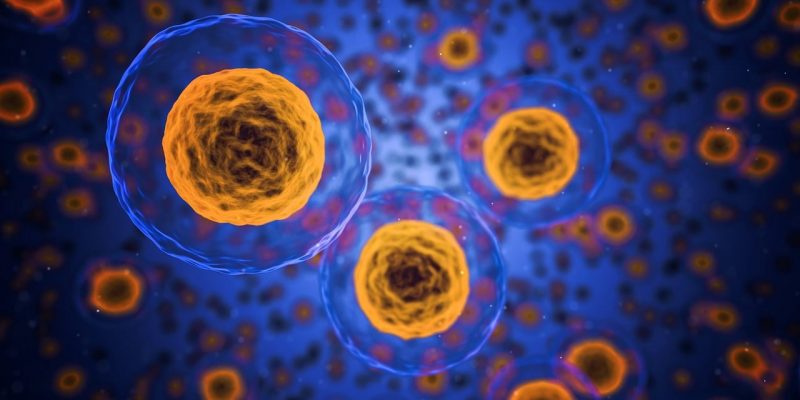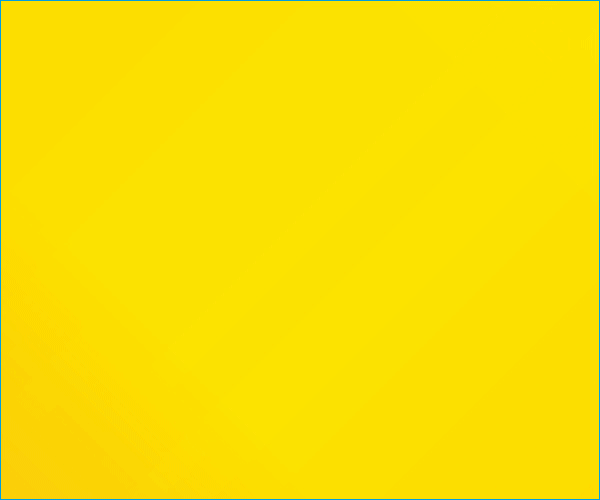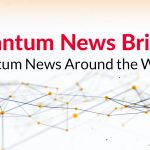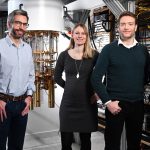Legitimizing the Field of Quantum Biology: An Interview with Dr. Clarice D. Aiello

Dr. Clarice D. Aiello, an Assistant Professor at UCLA, is facing an uphill battle. As a quantum biology researcher, she is not only trying to find breakthroughs in how quantum physics affects biology macroscopically but is also trying to legitimize the entire field of quantum biology in the process. “Part of my job is to try to make quantum biology into a field of science that can be recognized as legitimate,” she explains. “Quantum biology comes with a lot of stigma. Quantum biology mostly relates to electromagnetics in biology, which in the West is considered ‘new age-y,’ like people wearing magnet bracelets and interested in investigating whether quantum physics is behind human consciousness, despite no concrete evidence to support this outrageous claim. Unfortunately, this creates a lot of baggage.”
Because this interdisciplinary field explores the interplay between quantum phenomena and biological systems, quantum biology sheds new light on the mysteries underlying life’s remarkable complexity. It holds vast potential for scientific advancements and technological innovations…once the mainstream scientific community can embrace it without prejudice. That is what Aiello is striving for. “Right now, the field is not recognized by peers and funding agencies alike,” she adds.
What Exactly is Quantum Biology?
Quantum biology seeks to unravel the underlying mechanisms behind biological processes at tiny length scales previously unexplored. Traditional biology often focuses on classical descriptions, ignoring particles’ quantum nature and behavior. Quantum biology recognizes that phenomena like superpositions (particles occupying multiple quantum states simultaneously) and entanglement (correlations between multiple quantum particles) could play vital roles in areas such as enzyme function, protein folding, and cellular signaling.
Within her own research, Aiello studies spins, a quantum mechanical property of electrons, and their interactions with a magnetic field within chemical reactions. “There is this analogy to what’s happening in those electron-dependent chemical reactions that interact with a magnetic field, which is the magnetic field actually influencing the state of particular electron spins, and thus, influencing the macroscopic outcome of those chemical reactions downstream,” Aiello states. “In general, external magnetic fields that change the fate of these chemical reactions are usually weak, from the order of the earth’s to the order of our cell phones’. The whole process presents uncanny similarities with what mainstream quantum physicists call ‘quantum sensing.’”
She has suggested that in the future, medicine may be able to harness these magnetic fields to help in biological processes such as wound healing. While this may sound like something out of science fiction, a 2022 paper in Cells showed that magnetic fields could help reduce inflammation. This paper is just one of decades of evidence showing the abilities of quantum biology.
Examples in Nature
“Imagine the time that nature had to figure out how to use quantum mechanics—literally billions of years,” Aiello states. “I genuinely think that there’s evidence, though not complete, that nature might be using quantum effects to function and to function optimally. So, I think we have a lot to learn about nature if that’s the case, i.e., how nature itself builds its own quantum technologies.” There are many examples of how quantum biology works in nature. For instance, quantum effects are consistent with underlying avian navigation, where birds utilize Earth’s weak magnetic field as a compass, and even in enzyme-catalyzed reactions, where tunneling of protons and electrons influences reaction rates.
While these examples can be visually helpful for students and others interested in what quantum biology entails, Aiello believes they must be utilized carefully. “Talking about those overused examples detracts from the message of how widespread and apparently organism-agnostic quantum effects are in biology,” she adds. “There are extensive data, arguably not very systematic, but that have existed for almost half a century strongly suggesting that organisms ranging from birds to plants to flies and both vertebrate and invertebrate cells respond to weak magnetic fields in a way that would be expected if the driving mechanism for their behavior were some sort of an electron spin-dependent chemical reaction altered by weak magnetic fields.”
Teaching This Field
One of the ways that Aiello is working to legitimize the field is by ushering in the next generation of researchers. “Right now, there is zero effort for young blood to enter the field from all levels,” she states. “I have to convince physicists to engage with the existing data showing that quantum might be happening outside their lab. I have to educate young scientists of what quantum mechanics might mean as an extra-level actuating in biology.” Because there is no established pipeline for students to study or pursue quantum biology as a career path, very few even realize the field exists.
For those already researching this topic, their careers are ending. As Aiello elaborates, “The field is getting old in that most researchers are in the second half or the last third of their career when they’re established, and they have a revenue stream that is more or less constant, when they then pivot to working on quantum biology problems.” This, too, can make it difficult for younger individuals to be inspired to join this field, as they don’t see other younger researchers to learn or engage with. “It’s very hard to start from scratch, even as a student, because there are no exact pathways for how to train the next generation of interdisciplinary scientists, and there is no community,” adds Aiello.
How to Legitimize Quantum Biology
Besides exposing more individuals to the practical potential of quantum biology research findings, Aiello also hopes to use technology to reveal the field’s legitimacy. “I think that what’s going to move the needle on the quantum biology field is the involvement with quantum engineers or instrumentalists,” Aiello says. “People trained, e.g., in Atomic and Molecular Optics (AMO) physics have a lot to contribute, because it’s all light-matter interactions. But here, the matter is biological matter.”
As an instrument developer herself, Aiello and her research team strive to design experiments that can explore these light-matter interactions. “What would help is a bona fide quantum instrument that initializes, manipulates, and reads out quantum degrees of freedom in biological matter while concomitantly monitoring other cellular functions that might come as a result of a different manipulation of those quantum degrees of freedom in the biological sample.” In her laboratory, Aiello and her team study nanosensors that harness quantum effects at room temperature and within noisy environments, two parameters that currently limit the scale of many other quantum devices. Here, the quantum nanosensors are electron spins inside proteins.
By recognizing the potential significance of quantum phenomena in biological systems, the emerging field of quantum biology offers a fresh perspective on the intricacies of life. As research progresses, quantum biology promises to unravel biological processes’ mysteries, unlock technological advancements, and inspire groundbreaking applications across various disciplines. Embracing the legitimacy and importance of this field is an exciting step towards a deeper understanding of the fundamental principles underlying the natural world.
Kenna Hughes-Castleberry is a staff writer at Inside Quantum Technology and the Science Communicator at JILA (a partnership between the University of Colorado Boulder and NIST). Her writing beats include deep tech, quantum computing, and AI. Her work has been featured in Scientific American, Discover Magazine, Ars Technica, and more.

























